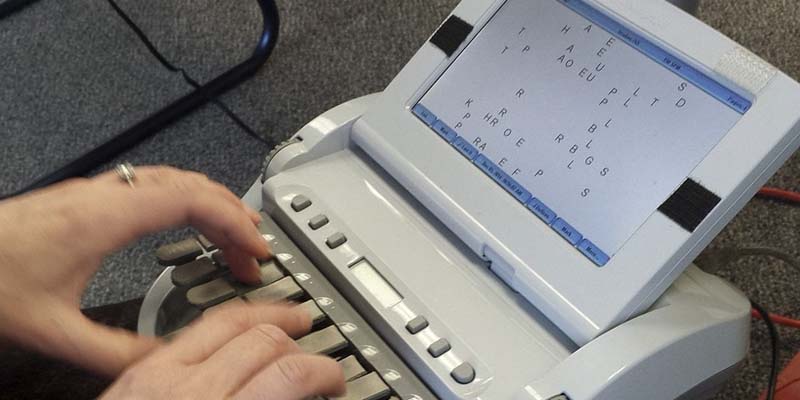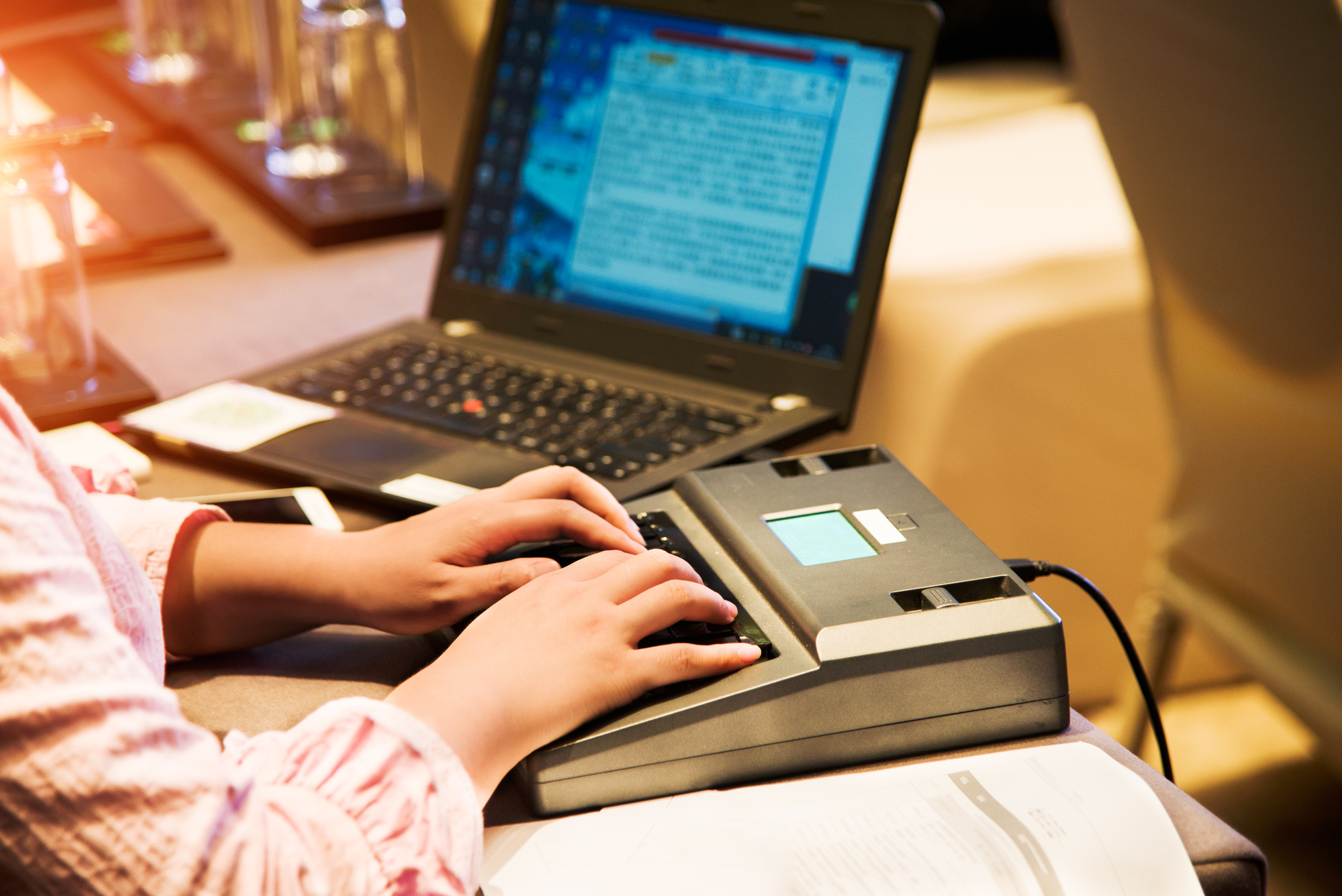Durham court reporting best practices for maintaining confidentiality
The Significance of Court Reporting in Ensuring Accurate Legal Procedures
Court reporting is a vital component of the lawful system. It provides a unbiased and specific record of court tasks. This paperwork is crucial for appeals and lawful research, making certain that every talked word is captured accurately. The stability of legal procedures depends heavily on these transcripts. Nonetheless, the duty of innovation and advancing techniques questions regarding the future of court reporting and its effect on justice. What modifications lie in advance?
The Duty of Court Reporters in the Legal System
Stenotype reporter play an important duty in the lawful system by giving objective and precise transcripts of process. Their work guarantees that court room discussions, witness statements, and legal debates are consistently documented, acting as a main document for future referral. This paperwork is essential for allures, lawful research, and keeping the honesty of judicial procedures. Stenotype reporter are trained experts proficient in stenography and numerous recording modern technologies, enabling them to capture talked words with precision. They have to possess a complete understanding of lawful terminology and court methods, ensuring that their transcripts fulfill the requirements needed by the judicial system. Additionally, they may give real-time transcription services, allowing courts and attorneys to gain access to details instantaneously throughout process. By meeting these responsibilities, court reporters promote transparency, accountability, and the reasonable administration of justice, thereby reinforcing the foundational concepts of the lawful system.
Making Certain Accuracy in Transcription
Precision in transcription is vital for maintaining the honesty of legal proceedings. Court reporters thoroughly catch every word spoken throughout trials, hearings, and depositions, ensuring that the authorities document reflects the true discussion and exchanges that take place. This precision is vital, as also minor mistakes can lead to substantial misunderstandings or false impressions of the legislation.
To achieve this level of precision, court press reporters utilize different methods, including energetic listening and the use of specialized shorthand approaches. Constant training and familiarity with legal terminology additionally enhance their capability to generate trustworthy records.
In addition, the verification process is crucial; press reporters frequently examine their records for prospective disparities prior to last entry. This diligence not just upholds the high quality of legal paperwork however also sustains the judicial procedure, allowing attorneys and judges to reference precise records when making choices. Eventually, exact transcription cultivates count on the lawful system and warranties that justice is served.
The Effect of Modern Technology on Court Reporting
As innovation continues to develop, its influence on court reporting has actually become significantly substantial. Digital tape-recording systems and speech recognition software have transformed typical techniques, providing new tools for capturing talked discussion. These innovations boost effectiveness and accessibility, making it possible for much faster transcription and real-time reporting. In addition, cloud-based systems assist in seamless sharing of records, improving partnership amongst legal professionals.

Inevitably, while innovation improves the speed and accessibility of court reporting, it emphasizes the requirement for human oversight to preserve the quality and accuracy vital for legal proceedings. As the area continues to adapt, the assimilation of modern technology will certainly play a critical duty fit the future of court reporting.

The Value of Discretion and Honesty
Privacy and stability are fundamental principles that underpin the practice of court reporting in legal procedures (durham court reporting). Court reporters are delegated with sensitive info, needing them to keep discretion and shield the privacy of all events included. This discretion fosters a relying on setting where witnesses and plaintiffs can talk freely, guaranteeing that the lawful process is reasonable and simply
Stability is just as necessary; court reporters must supply honest i was reading this and accurate records, functioning as the official record of the procedures. Any kind of gap in integrity can result in misinterpretations, potentially affecting situation outcomes and weakening the judicial system.
Future Fads in Court Reporting
The landscape of court reporting is progressing in feedback to technological improvements and the altering demands of the legal profession. Emerging trends consist of the integration of artificial knowledge and real-time transcription solutions, which boost performance and precision. Court press reporters are progressively using electronic tools, such as cloud-based systems, enabling for smooth partnership amongst lawful teams and less complicated accessibility to records.
Furthermore, the surge of remote court procedures has actually motivated the development of specialized training for press reporters in virtual settings. This change not only adapts to the needs of a globalized lawful landscape yet additionally addresses difficulties presented by geographical barriers.
In addition, the focus on access is driving technologies in transcription layouts, making certain that lawful files provide to varied audiences. On the whole, the future of court reporting is identified by a mix of standard abilities and modern technology, positioning press reporters as essential players in the lawful process.
Frequently Asked Concerns
What Qualifications Are Needed to End Up Being a Stenotype Reporter?
To come to be a stenotype reporter, people generally require a senior high school diploma, specialized training in court reporting, proficiency in shorthand or voice writing, and qualification or licensing, depending upon the jurisdiction and specific work needs. - durham court reporting
How Do Court Reporters Maintain Their Abilities Over Time?
Stenotype reporter preserve their abilities gradually with constant education, technique, and engagement with specialist organizations. They typically redirected here attend workshops, utilize innovative modern technology, and participate in certification programs to boost their efficiency and adapt to developing standards.
What Difficulties Do Court Reporters Face in Their Occupation?
Stenotype reporter experience countless difficulties, consisting of handling high-pressure settings, adapting to diverse accents and languages, maintaining technological efficiency, ensuring precision under tight deadlines, and dealing with mentally charged statements that might impact focus and performance.
Are Court Reporters Included in Other Legal Setups Besides Courtrooms?
Court reporters are indeed associated with various lawful setups past courtrooms, including depositions, adjudication hearings, and management procedures. Their competence Our site assurances accurate transcripts in these atmospheres, adding to the quality and dependability of lawful paperwork.
Exactly How Do Stenotype Reporter Handle Stressful Situations During Procedures?

Court reporters manage difficult circumstances by keeping focus, utilizing effective time monitoring skills, and using their training to remain calm. They commonly exercise deep breathing and employ methods to minimize disturbances, making sure accurate documents under stress.
Court reporting is a critical component of the lawful system. Court press reporters play a necessary role in the lawful system by supplying exact and neutral transcripts of process. Inevitably, while innovation enhances the rate and ease of access of court reporting, it emphasizes the requirement for human oversight to maintain the high quality and precision necessary for lawful procedures. Confidentiality and stability are fundamental concepts that underpin the technique of court reporting in legal procedures. Court reporters are certainly included in various lawful setups past courts, including depositions, mediation hearings, and administrative process.